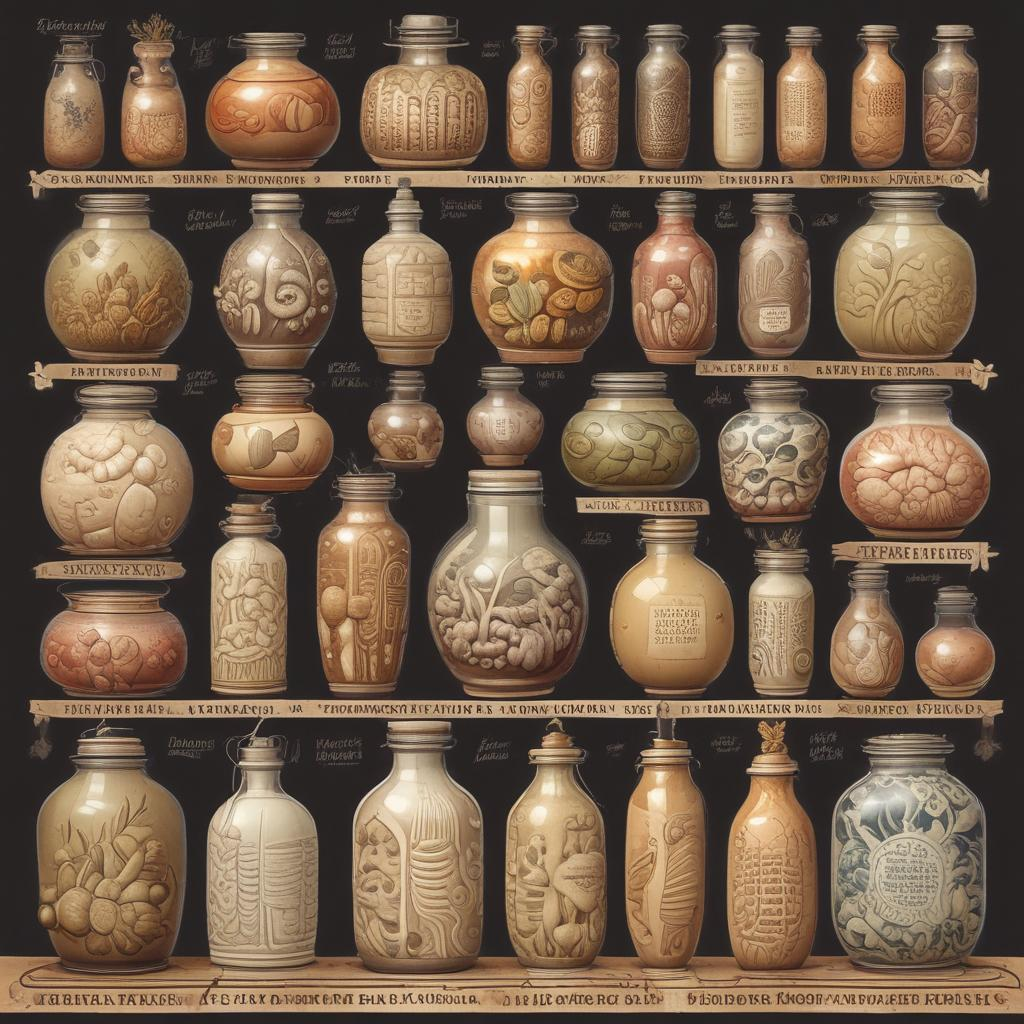The Role of Fermentation in Human History: Key Points Through the Ages
Fermentation is a metabolic process that converts sugar to acids, gases, or alcohol. It occurs in yeast and bacteria, but also in oxygen-starved muscle cells, as in the case of lactic acid fermentation. The technology of fermentation is ancient and has profound impacts on societies throughout mankind's history. From preserving food to enhancing nutritional content to crafting intoxicating beverages, fermentation has been a cornerstone of human culture. Here are some critical points that outline the importance and evolution of fermentation through historical contexts:

- The Origins of Fermentation
Archaeological findings suggest that fermentation was in practice as long as 10,000 years ago. Early civilizations in Mesopotamia and Sumer may have stumbled upon the process accidentally and recognized its preservative qualities. The oldest evidence of winemaking dates back to 6000 BC in what is now Georgia. In China, residue found on pottery dated around 7000 BC reveals that people were making an alcoholic concoamine rice, honey, and fruit.
- Fermentation for Preservation
In the times before refrigeration, fermentation was mainly utilized to preserve foods. It was a survival technique to prolong the shelf life of perishable goods, including dairy products, vegetables, and meats. Sauerkraut, for example, was made by the fermenting cabbage, a process discovered by the Chinese thousands of years ago. The production of kimchi in Korea follows a similar historical arch, functioning both as a way to store vegetables during long winters and as a source of vitamins and minerals.
- Fermentation and Health
Historical records show that fermented food played a role in health and wellness. Fermented products are well-known to host beneficial bacteria, which are critical for gut health and overall immune function. The famous Greek physician Hippocrates often used fermented products in his treatments. The benefits of these foods were likely observed even in ancient times, albeit without a clear understanding of the microbiological processes involved.
- Fermentation as a Social and Cultural Component
Alcoholic beverages created through fermentation processes, such as beer, wine, and spirits, have always been more than just drinks; they have served as a social lubricant. Many ancient cultures held alcohol in high regard for ceremonial uses. In many societies, brewing and fermenting beverages was entwined with religious practices and rites of passage, revealing the deep cultural significance of fermentation.
- The Role of Fermentation in Trade and Economy
The ability to produce alcoholic beverages like wine and beer presented significant economic opportunities throughout history. For example, in medieval Europe, monasteries became centers of brewing know-how, often refining the processes to higher forms of art. These beverages were then traded, helping to sustain the monastic communities economically and often spreading their religious influence.
- Fermentation in Scientific and Technological Advances
The study of fermentation has also paved the way for science, particularly in microbiology. French chemist Louis Pasteur, in the 19th century, was among the first scientists to study fermentation in a scientific context, leading to the germ theory of diseases. His work laid the foundation for the understanding of microorganisms and their roles in processes ranging from food spoilage to infection to fermentation.
- Modern-Day Fermentation
Today, fermentation is at the heart of many industries beyond just food and beverage. Pharmaceuticals, agriculture, and even biofuel industries use fermentation technology to produce their products. The fermentation process is vital in producing essential products such as insulin, hormones, and vaccines. This modern application is a direct extension of the principles observed and utilized since ancient times.
- Revival of Traditional Fermentation Methods
There is a renewed interest in traditional fermenting methods and probiotic foods thanks to a growing awareness of health and nutrition. Artisanal foods, craft beers, and ethnic ferments like kombucha have become trendy, signifying a return to and appreciation of ancient processes. This trend not only supports small businesses but also encourages dietary diversity and local culinary traditions.
- Fermentation as Sustainable Practice
In an era where sustainability is key to long-term ecological health, fermentation offers significant advantages. It is an energy-efficient food preservation method that produces minimal waste. It also contributes to food security by allowing local production and enhancing the nutritional density of food, making it a critical technique in global sustainable development efforts.
- Fermentation in the Arts and Humanities
Fermentation is not only a matter of scientific and economic significance, but it also has a place in the arts and humanities. The process and its products have been featured in literature, music, and folklore, showcasing its deep roots and multifaceted impact on human cultures. From ancient hymns praising Sumerian beer goddesses to contemporary songs and novels featuring wine and spirits, fermentation continues to inspire and influence human creativity.
Fermentation has shaped and been shaped by human history in numerous ways, impacting our diets, health, economies, and culture. This ancient technology, though often taken for granted, remains a vital part of human civilization, promising to contribute to both traditional and innovative practices in the future.


.jpg)




.jpg)




.png)
0 Comments